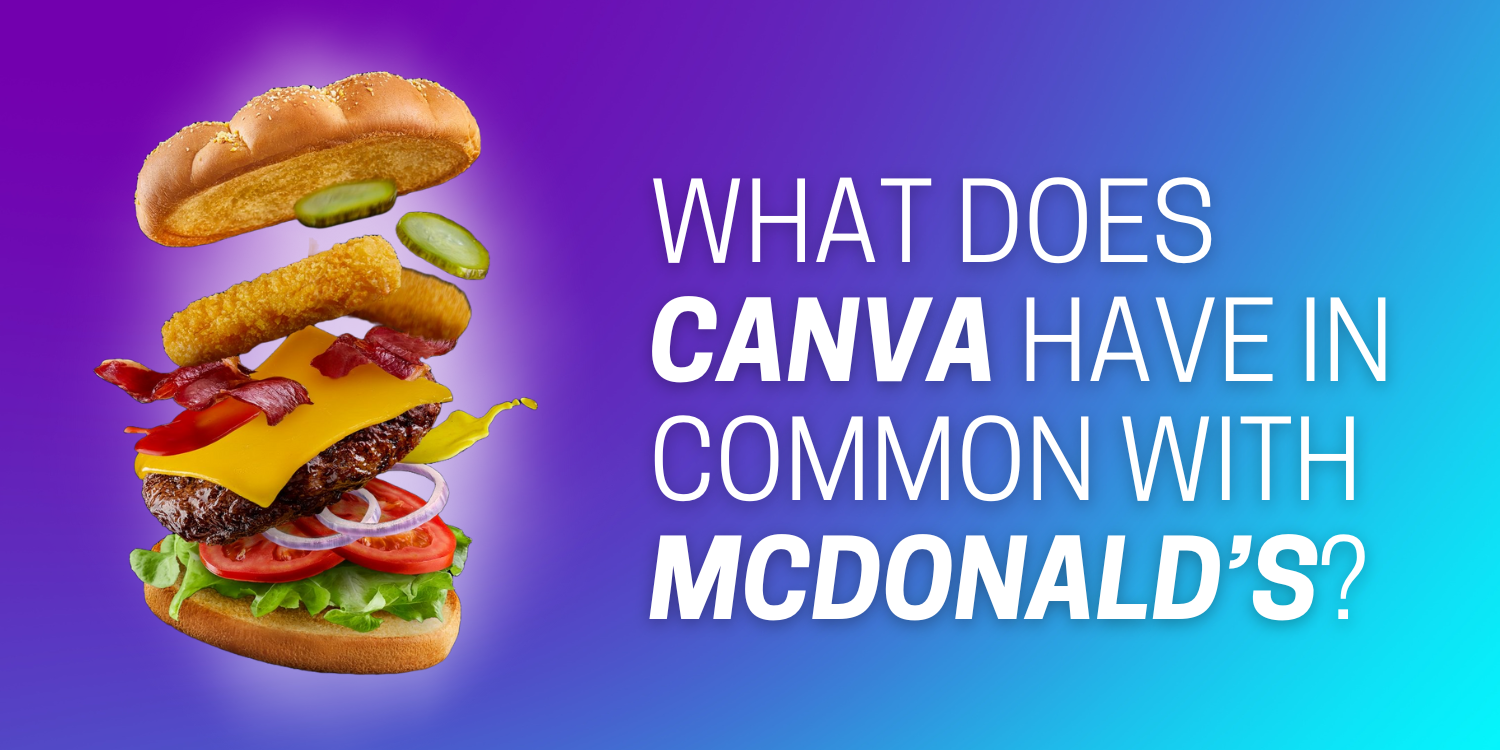Canva: A Versatile Tool for Digital Marketing, but Not for Logos
In the fast-paced world of digital marketing, having the right tools at your disposal is essential for creating visually appealing content that grabs your audience's attention. I’ve been known to call Canva the "McDonald's" of design tools. It is undoubtedly a versatile platform that offers a wide range of templates and design elements. It's a go-to resource for creating eye-catching social media graphics, posters, flyers, and more. However, despite its convenience, there are instances where Canva may not be the best choice, and one such instance is logo design.
Canva's appeal lies in its user-friendly interface and an extensive library of pre-designed templates, fonts, and graphics. For small businesses and individuals with limited design expertise, it's a lifesaver, allowing them to create polished marketing materials without the need for a professional graphic designer. It's perfect for crafting engaging social media posts, informative infographics, and beautiful presentations, helping brands maintain an active online presence without breaking the bank.
However, the story takes a different turn when it comes to logos. Logos are the cornerstone of a brand's identity, and they need to be unique, memorable, and versatile. While Canva offers logo templates that can serve as a starting point, it falls short in delivering the quality and flexibility required for an effective logo design.
One critical factor to consider is scalability. Logos need to look sharp and clear at various sizes, from a tiny favicon on a website to a large banner on a billboard. Logos should be vectorized, which means they're created using mathematical equations and can be resized without losing quality. Canva primarily outputs raster graphics (pixel-based), which are suitable for digital screens but may appear pixelated when scaled up, especially for print.
Furthermore, a logo is a visual representation of a brand's values, mission, and personality. It should be entirely unique and tailored to the specific brand it represents. Canva's logo templates, while aesthetically pleasing, are not customizable enough to create a truly original logo that sets your brand apart from the competition.
In summary, Canva is an invaluable tool for digital marketing agencies and small businesses looking to create engaging visual content quickly and affordably. It excels at producing social media graphics, marketing collateral, and other digital assets. However, when it comes to logo design, it's wise to invest in professional graphic design services. Logos are a long-term investment in your brand's identity, and their scalability and uniqueness are crucial. So, while Canva is a fast and easy solution for many design needs, it's not the best choice when it comes to crafting a distinctive and enduring logo for your brand.
Canva: The Fast Food of Design
In the fast-paced world of digital marketing, having the right tools is essential for creating captivating content that grabs your audience's attention.Think of Canva as the "McDonald's" of design tools – a quick, convenient, platform bursting with templates and design goodies. It's your go-to for whipping up social media visuals, posters, flyers, and more in a flash. But, hold on a minute – there's a catch. When it comes to logo design, Canva may not be the Big Mac you're craving.
Canva's charm lies in its user-friendly interface and a treasure trove of pre-made templates, fonts, and graphics. For small businesses, Canva can be a lifesaver. It lets you create snazzy marketing materials without hiring a professional graphic artist or paying for expensive software. It's perfect for cranking out Instagram posts, snappy infographics, and dazzling presentations, helping brands stay fresh online without emptying the bank.
But, the plot twists when we talk about logos. Logos are your brand's heart and soul – they should be unique, unforgettable, and adaptable. While Canva dishes out logo templates to get you started, it doesn't quite serve the secret sauce needed for a top-notch logo.
Here's the first snag: scalability. Logos need to look sharp whether they're sipping espresso on a tiny website icon or waving from a ginormous billboard. Logos should be vectorized, meaning they're made with mathematical equations so they can grow or shrink without losing their mojo. Canva, unfortunately, mainly cooks up raster graphics (pixel-based), great for screens but not-so-great for print – think of it like blowing up a low-res photo.
And here's the second twist: personality. A logo is your brand's visual signature – it embodies your values, mission, and style. It should be one-of-a-kind, tailor-made for your unique brand. Canva's logo templates, while spiffy, might not offer enough customization for a logo that truly stands out in a saturated marketplace.
TL; DR: Canva's your trusty sidekick for many of your digital marketing projects, especially on a tight budget. It's your wingman for social media graphics and (almost) all things digital. But when it's time to print, or time to create a unique, scalable, memorable logo, consider investing in professional design services.

